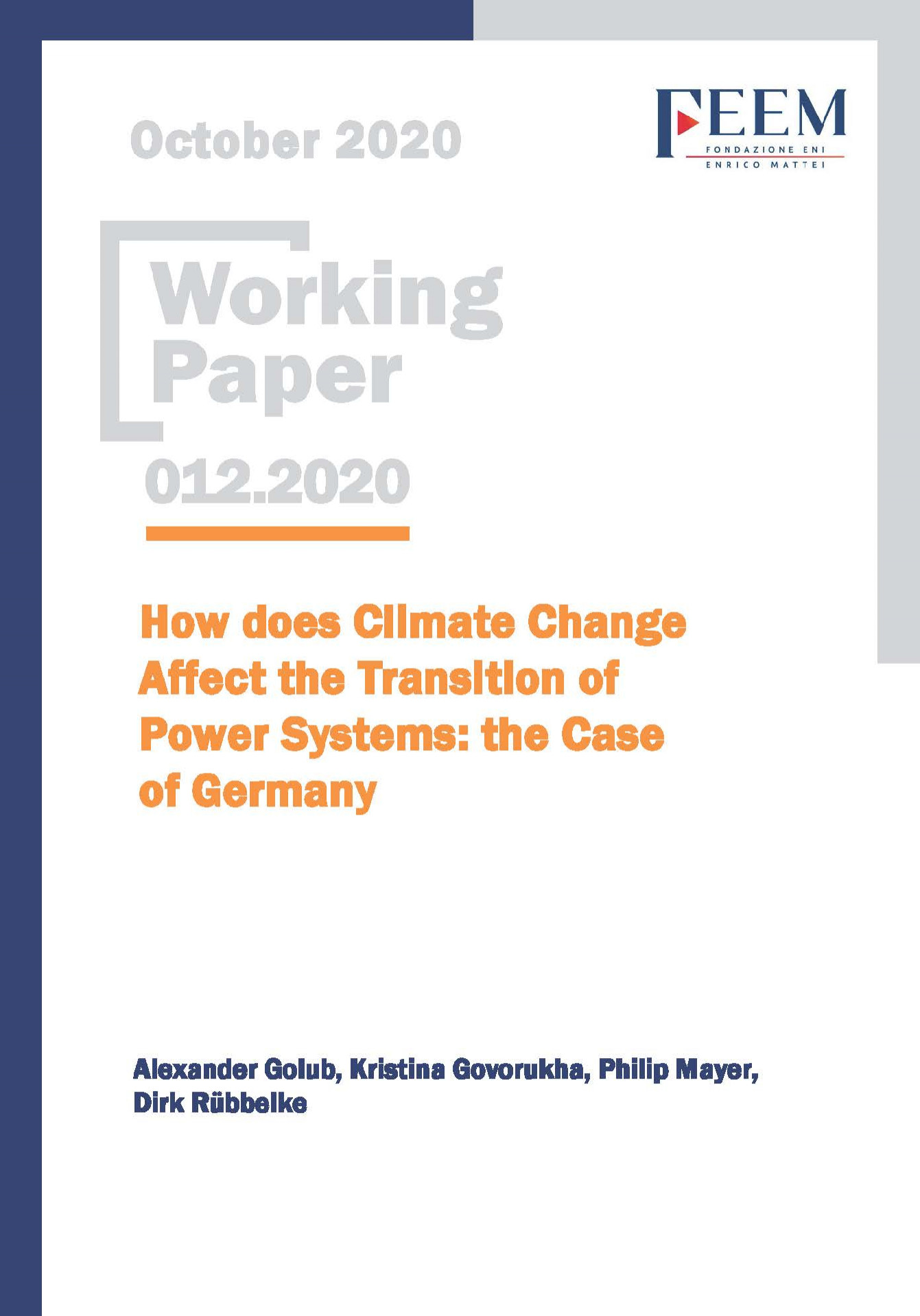How does Climate Change Affect the Transition of Power Systems: the Case of Germany

08.10.2020
Q4, Q54
Electricity, Energy, Energy Utilities, Gas, Hydrocarbons, Climate, Climate Change, Desertification, Drought, Global Warming, Weather
Firms and Cities Towards Sustainability
Stefano Pareglio
The effects of extreme weather events, such as heat waves and droughts are taken into account in both global and European policies. Accordingly, the protection of critical infrastructures and in particular, the resilience of the energy sector was the subject of intense research. There are regional differences in the degree of exposure to extreme events. In Northern Europe, their intensity has increased dramatically within a decade. In our analysis we identify emerging risks of extreme weather events, in particular, droughts and high temperatures, for the German power sector. Furthermore, we consider how European policy addressed these severe risks. Our analysis is based on extensive datasets covering temperature and drought data for the last 40 years. We find evidence of a higher frequency of power plants outages as a consequence of droughts and high temperatures. We investigate increases in the wholesale electricity price and price volatility and develop a capacity-adjusted drought index. The results are used to assess the monetary loss of power plant outages due to heatwaves and droughts. We stress that increasing frequencies of such extreme weather events will aggravate the observed problem, especially with respect to the transition of the power sector.
***
Suggested citation: Golub, A., K. Govorukha, P. Mayer, D. Rubbelke, (2020), ‘How does Climate Change Affect the Transition of Power Systems: the Case of Germany’, Nota di Lavoro 12.2020, Milano, Italy: Fondazione Eni Enrico Mattei
